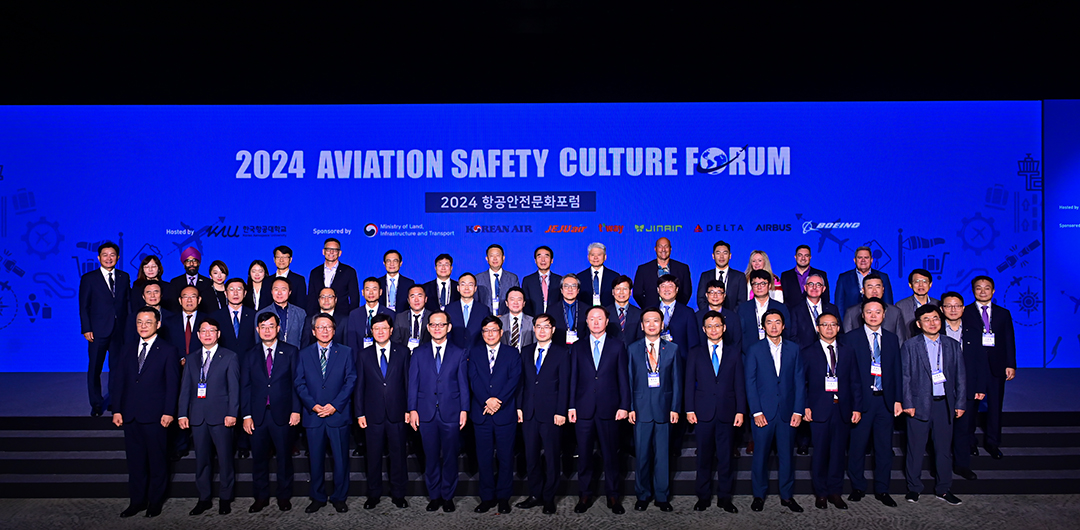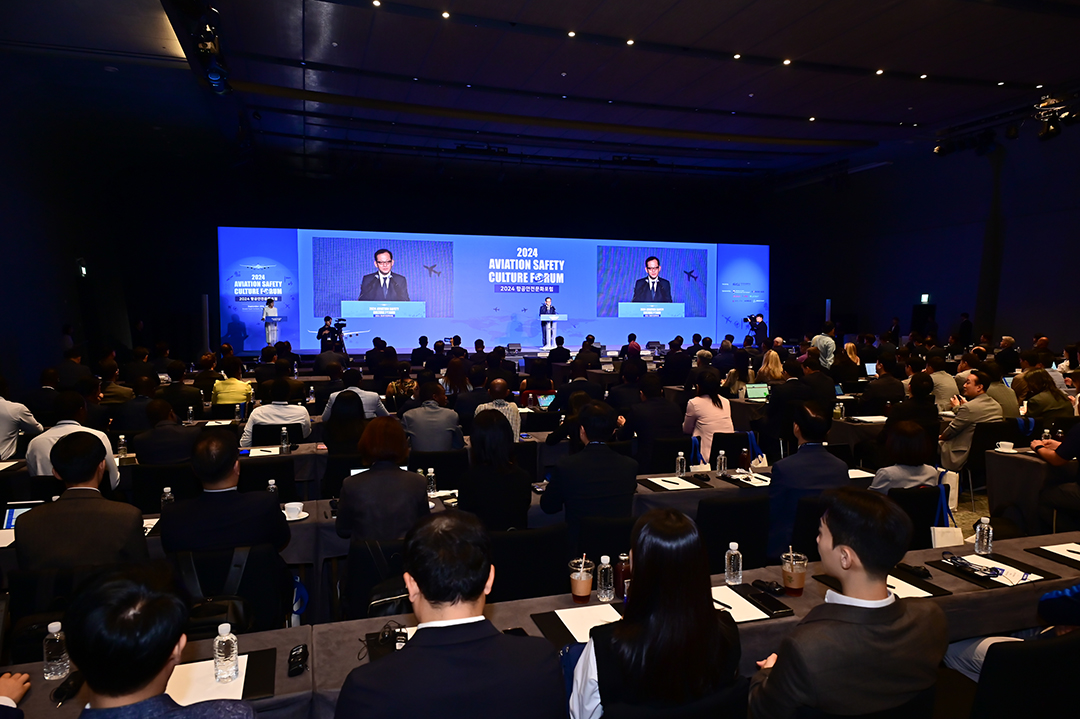KAU Holds “2024 Aviation Safety Culture Forum” With MOLIT and Airlines In and Out of Korea
- 2024-10-14

On Sep. 25, the Korea Aerospace University (KAU) held the 2024 Aviation Safety Culture Forum at the Grand Hyatt Incheon. Hosted by KAU and sponsored by the Ministry of Land, Infrastructure and Transport (MOLIT), Korean Air, Jeju Air, T’way Air, Jin Air, Delta Air Lines, Airbus SE, and Boeing, the forum was held under the theme of establishing a culture for aviation safety.
The event aimed to improve aviation safety and lay
the foundation for fairness in the Republic of Korea through cooperation
between industry entities, government organizations, and academic parties. The
forum was attended by over 230 participants from 11 domestic airlines,
including Korean Air, as well as aviation-related government agencies and
academia from within and abroad. Significant stakeholders in the global
aviation industry, such as Delta Air Lines, Hawaiian Airlines, Airbus SE, and
Boeing, also participated.
In his opening remarks, President Hee-young Hurr said, “This forum, which brings together industry, government, and academia representing Korea’s aviation sector, will serve as an opportunity to further strengthen the safety of Korea’s aviation industry, which is recovering rapidly post-COVID-19. I believe this forum aligns with the mission of KAU, the nation’s only comprehensive university for aerospace.”

President Hurr’s remarks were followed by a
welcoming speech from Jong-wan Joo, Deputy Minister of Korea Office of Civil
Aviation (KOCA). He emphasized, “The signing of the ‘Aviation Safety Culture
Leadership Charter’ by domestic airlines at today’s forum signifies a strong
commitment to spreading safety awareness throughout the aviation industry. The
government will also support aviation safety by continuing to provide policy
support.”
On the same day, 11 domestic airlines, including
Korean Air, along with our university, announced the “Aviation Safety Culture
Leadership Charter.” Korean Air CEO Kee-hong Woo and President Hurr personally
signed the charter, which consists of five resolutions:
1. Make [L1] aviation safety the top management priority and do
one’s best to deliver this value to customers.
2. Recognize the
gravity of building a positive safety culture and affirm leadership’s
commitment to safety.
3. Consistently
strive to improve safety culture and create an environment where all aviation
personnel are treated fairly and clearly understand acceptable and unacceptable
behavior.
4. Foster a
trustworthy environment for active exchanges of information and reports without
fear of retaliation; and equip employees with the knowledge and competencies needed for safe
operations.
5. Flexibly respond
to changing environments and foster a culture of sharing and spreading safety
information.
A discussion was held in Session 1, chaired by
Professor Ho-won Hwang from KAU’s Department of Air Transportation and
Logistics, with panels including Professor Jang-ryong Lee from KAU’s Department
of Aeronautical Science and Flight Operations, addressing the current state of
aviation safety culture in Korea and exploring potential improvement measures.
Session 2 was chaired by Bennett Walsh, the Senior Vice President of Korean
Air, focusing on various case studies of aviation safety culture. Session 3 featured a panel discussion
exploring the directions for improving aviation safety, moderated by Professor
Yeon-cheol Choi from Hanseo University, with presentations by Professor In-gi
Na from KAU’s Global Aviation Studies.
A Korean Air representative at the forum stated,
“We will establish a proactive safety management paradigm based on safety
culture partnerships and secure a leading position in the global aviation
industry by solidifying aviation safety.”
[L1]원문에서는
△표시로
작성되어있던 부분이나, 영어에서는 해당표시를 사용하지 않아 대신 넘버링으로 처리하였습니다. 확인부탁드립니다.

